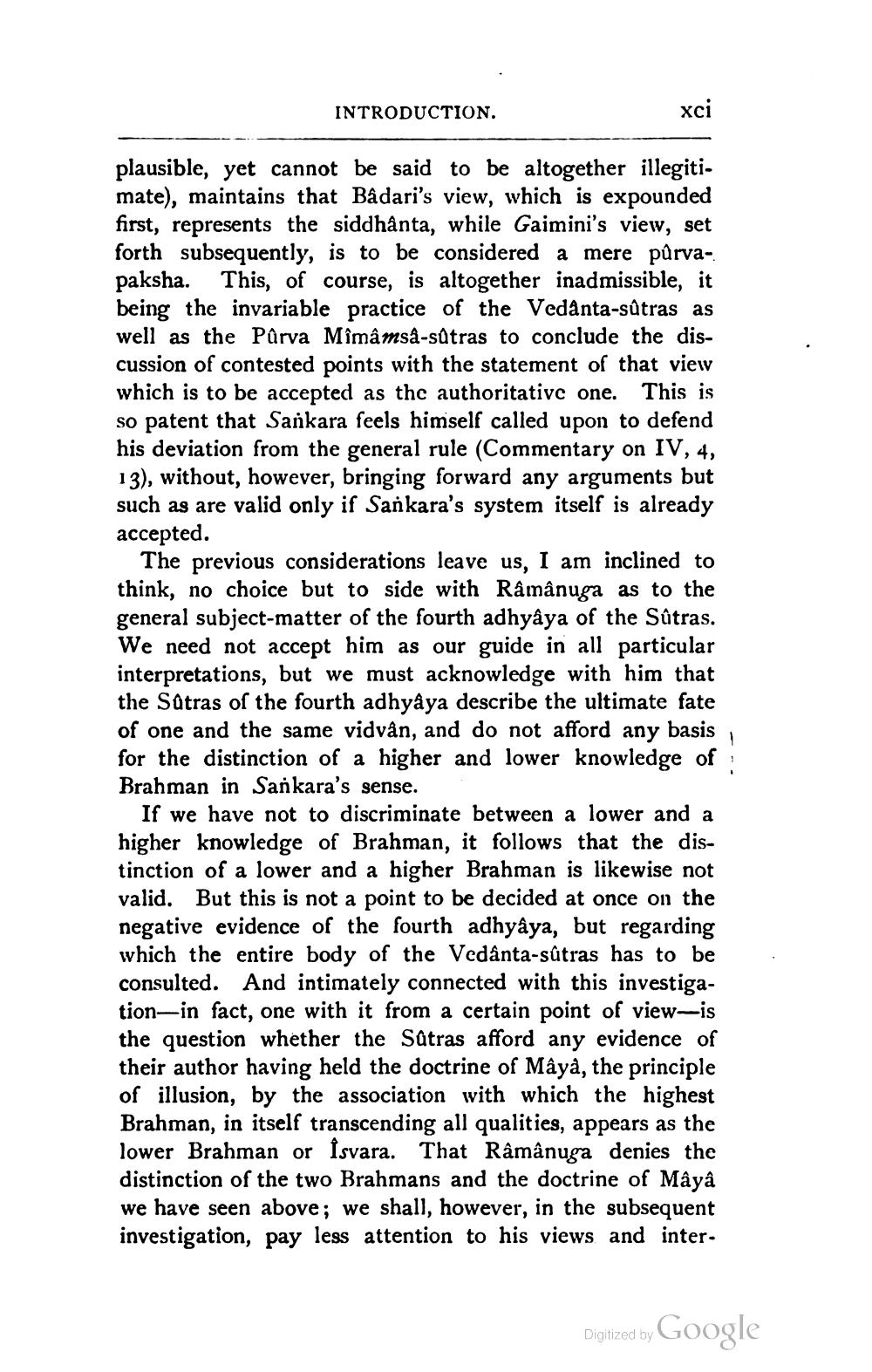________________
INTRODUCTION.
xci
plausible, yet cannot be said to be altogether illegitimate), maintains that Bådari's view, which is expounded first, represents the siddhanta, while Gaimini's view, set forth subsequently, is to be considered a mere pûrva-. paksha. This, of course, is altogether inadmissible, it being the invariable practice of the Vedanta-sútras as well as the Purva Mimâmsa-sútras to conclude the discussion of contested points with the statement of that view which is to be accepted as the authoritativc one. This is so patent that Sankara feels himself called upon to defend his deviation from the general rule (Commentary on IV, 4, 13), without, however, bringing forward any arguments but such as are valid only if Sankara's system itself is already accepted.
The previous considerations leave us, I am inclined to think, no choice but to side with Râmânuga as to the general subject-matter of the fourth adhyâya of the Sûtras. We need not accept him as our guide in all particular interpretations, but we must acknowledge with him that the Satras of the fourth adhyâya describe the ultimate fate of one and the same vidvân, and do not afford any basis for the distinction of a higher and lower knowledge of Brahman in Sankara's sense.
If we have not to discriminate between a lower and a higher knowledge of Brahman, it follows that the distinction of a lower and a higher Brahman is likewise not valid. But this is not a point to be decided at once on the negative evidence of the fourth adhyâya, but regarding which the entire body of the Vedanta-sútras has to be consulted. And intimately connected with this investigation-in fact, one with it from a certain point of view—is the question whether the Satras afford any evidence of their author having held the doctrine of Mâyà, the principle of illusion, by the association with which the highest Brahman, in itself transcending all qualities, appears as the lower Brahman or Isvara. That Râmânuga denies the distinction of the two Brahmans and the doctrine of Mâyâ we have seen above; we shall, however, in the subsequent investigation, pay less attention to his views and inter
Digitized by Google




